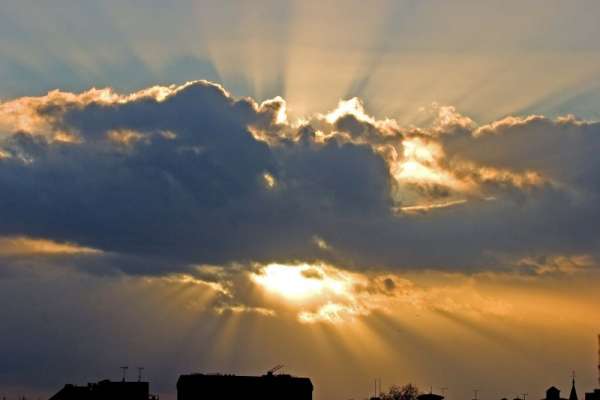
Welcome to the ezine produced by SGI Buddhists that prompts the positive, kindles the constructive, highlights the hopeful and leaves you feeling - well, up!


Things are looking pretty gloomy financially. But faced with great challenges it is both necessary and possible to generate hope, explains Daisaku Ikeda
Buddhism teaches that the same power that moves the universe exists within our lives. Each individual has immense potential, and a great change in the inner dimension of one individual’s life has the power to touch the lives of others and transform society. When we change our inner determination, everything begins to move in a new direction.
Hope, in this sense, is a decision.
Mahatma Gandhi led the non-violent
struggle for Indian independence from British colonial rule, succeeding
against all the odds. He was, in his own words, “an irrepressible
optimist.” His hope was not based on circumstances, rising and
falling as things seemed to be going better or worse. Rather,
it was based on an unshakable faith in humanity, in the capacity of
people for good. He absolutely refused to abandon his faith in his
fellow human beings. Keeping faith in people’s essential goodness,
and the consistent effort to cultivate this goodness in ourselves -
as Gandhi proved, these are the twin keys to unleashing the great power
of hope. Believing in ourselves and in others in this way - continuing
to wage the difficult inner struggle to make this the basis of our actions
- can transform a society that sometimes seems to be plummeting toward
darkness, into a humane and enlightened world where all people are treated
with respect.
There may be times when, confronted by cruel reality, we verge on losing all hope. If we cannot feel hope, it is time to create some. We can do this by digging deeper within, searching for even a small glimmer of light, for the possibility of a way to begin to break through the impasse before us. And our capacity for hope can actually be expanded and strengthened by difficult circumstances. Hope that has not been tested is nothing more than a fragile dream. Hope begins from this challenge, this effort to strive toward an ideal, however distant it may seem.
It is far better to pursue
a remote, even seemingly impossible goal than to cheat ourselves of
the forward motion that such goals can provide. I believe that the
ultimate tragedy in life is not physical death. Rather, it is
the spiritual death of losing hope, giving up on our own possibilities
of growth.
My mentor, Josei Toda, once
wrote: “In looking at great people of the past, we find that
they remained undefeated by life’s hardships, by life’s pounding
waves. They held fast to hopes that seemed mere fantastic dreams
to other people. They let nothing stop or discourage them from
realizing their aspirations. The reason for this, I feel certain,
is that their hopes themselves were not directed toward the fulfilment
of personal desires or self-interest, but based on a wish for all people’s
happiness, and this filled them with extraordinary conviction and confidence.”
Here he pointed to a crucially
important truth: real hope is found in committing ourselves to
vast goals and dreams - dreams such as a world without war and violence,
a world where everyone can live in dignity. The problems that
face our world are daunting in their depth and complexity. Sometimes
it may be hard to see where - or how - to begin. But we cannot
be paralysed by despair. We must each take action toward the goals
we have set and in which we believe. Rather than passively accepting
things as they are, we must embark on the challenge of creating a new
reality. It is in that effort that true, undying hope is to be
found.
[A longer version of this essay first appeared in Hold Hope, Wage Peace (2005) edited by David Krieger and Carah Ong, available from www.wagingpeace.org]

